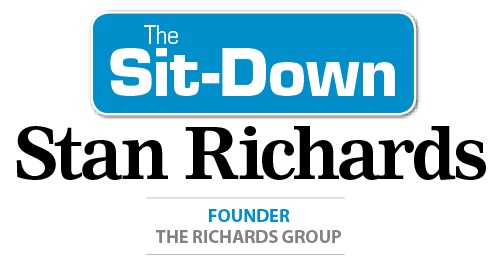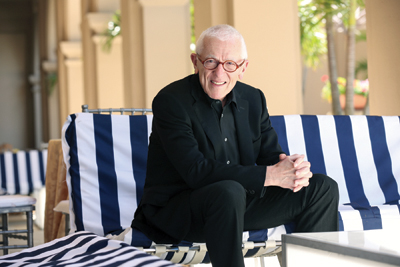
W
e run a very tight ship, but there are really only two rules: get to work on time and do your time sheet every day.
Getting in before 9 a.m. might not work in other cities, but understand why I am fanatic about that: If you get in on time, you will go home on time. It is not healthy for people to ignore their families and wander in after 10 a.m. so they can leave at 9 p.m.
I want everybody out after 6. If you didn’t want any discipline, you should have been a gallery painter.
 |
Photo by: GORT PRODUCTIONS
|
The problem with sports analogies in advertising is that they are almost always lame links between the sports and the brand. We just won’t do that.
The AT&T spot [from BBDO, New York] with kids where they brought in hall-of-fame NBA players recently was just very well done and not forced at all, so it’s my current favorite.
Our Motel 6 campaign is 28 years old and has made a wealthy man out of Tom Bodett, who ad-libbed the tag line we still use (“We’ll leave the light on for you”).
Our first advice to them when we were hired was “don’t advertise,” until the product gets improved. That is not an easy thing for an agency to tell a client, but you can see we are still together.
One of the biggest issues agencies have to deal with is the velocity of change with client CMOs, something like every 22 months. Every time a CMO changes, the agency is in jeopardy.
Look at Chick-fil-A: We are almost at 19 years and working with the same CMO who hired us and the same senior marketing people. Continuity makes a big difference.
Every good creative idea has ugly parents. I guess that relates to how many ideas we kill to get to the idea that really matters.
When we are working on a Super Bowl assignment, we may have 30 teams working to get one idea in the end. The interesting dynamic is that while it’s fiercely competitive, I’ve found everyone is helping each other during the competition. That’s really rewarding.
I don’t watch every episode of “Mad Men,” but I like it and it really captures the ad world in New York when I graduated from Pratt. I can’t tell you the last time I was with anybody that ordered a drink over lunch, but that show caught that era exactly.
On major assignments, we’ll have competitive teams working for the big campaign idea, and they all understand only one will get through.
The work has to be something endearing. Is it going to be a smile, a laugh, or some new information? It has to be riveting enough to stop the reader or viewer that’s targeted. It has to make them like the advertiser and set up a positive relationship. If you are at a car dealership, the salesman first needs to make you like him. Then you can do business. It’s no different.
I consider John Wooden a mentor. The most successful basketball coach ever, and he turned out terrific people. … I read everything he wrote. So he was a great influence, but I never met him.
I hire all of our creative people. I have to really like them, so I start every job interview by asking, “Tell me what you were like in high school.” That usually tells you a lot about them.
I was an average student in high school, but I played a lot of basketball and I was the person who could draw better than anyone I knew.
All the big [agency] holding companies have called several times, but not for the past several years. They finally understand we are not, and never will be, for sale.
I’ve watched 100 agencies be acquired the last decade or so, and not one got better. They are worried about shareholder value, but in our case, the shareholder is me, and I am fine.
Being acquired lets you put a whole bunch of money away. Frankly, that’s not a concern of mine. I keep working because I like it, it’s fun. I’ve been coming to work every day for 60 years.
Everyone at our place understands that the only thing that matters is the work, the work, the work.






